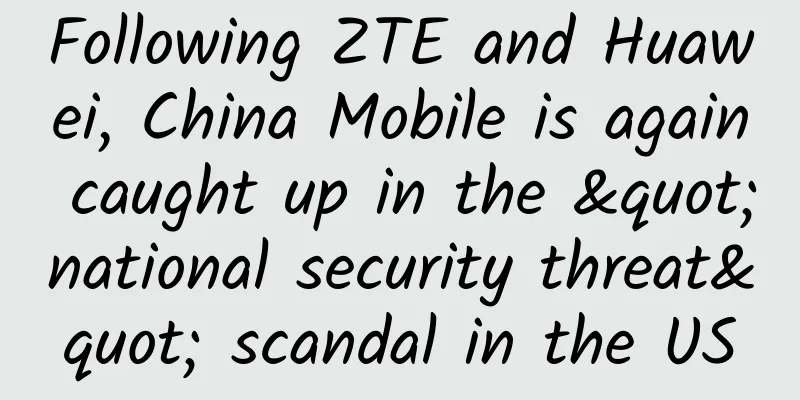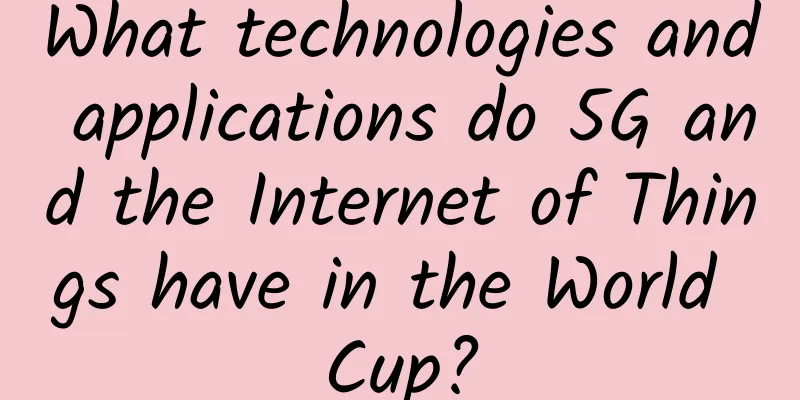Following ZTE and Huawei, China Mobile is again caught up in the "national security threat" scandal in the US

|
Trump reportedly blocked China Mobile from entering the U.S. telecommunications market on the grounds that it would threaten U.S. national security. China Mobile submitted an application to enter the U.S. market in 2011.
On Monday, the U.S. National Telecommunications and Information Administration (NTIA) said in an email that the Federal Communications Commission (FCC) should reject China Mobile's application because China Mobile is backed by the Chinese government and allowing China Mobile to provide international voice communications between the United States and other countries would pose risks to U.S. law enforcement and national security. On Friday, the United States said it would impose tariffs on $34 billion of Chinese imports, and China said it would retaliate in kind. U.S. President Donald Trump threatened to impose additional tariffs on $200 billion worth of Chinese imports if China retaliated. The United States has been the world's hegemon in the past few decades, especially in technology, but this dominance will not last forever. Previously, ZTE and Huawei were sanctioned by the United States one after another. There are signs that China will play an absolute leading role in the development of technologies such as 5G and artificial intelligence, and the United States needs to ensure its absolute leading position in technology. ZTE was banned from buying American components for seven years after being accused of violating US sanctions against Iran and North Korea. The company stopped trading in Hong Kong on April 16 and ceased all operations in early May. The lifting of the ban has entered the legal process after ZTE recently reached an agreement with the US Department of Commerce. According to the agreement, ZTE will pay a fine of US$1 billion, put US$400 million as escrow funds, and fire all senior vice presidents and above. Huawei and Google announced a strategic partnership in January, and Huawei will integrate Google's Android information into Huawei's Android smartphones. However, some lawmakers in the US Congress seem to be interested in banning Huawei's business in the US. Five lawmakers sent a letter to Google CEO Sundar Pichai, asking Google to reconsider its partnership with Huawei, believing that it could pose a potential threat to US national security. This time, the United States has again refused China Mobile's entry into the U.S. market on the grounds that it would threaten national security. This is only part of the increasingly fierce Sino-U.S. trade war in recent times. |
<<: From "eating meat" to "drinking soup": the difficult transformation of telecom operators
>>: Six wireless transmission modes, do you know them all?
Recommend
Three major operators: 5G package user penetration rate will exceed 60% in 2022
On March 13, China Telecom Corporation Limited an...
The Ministry of Industry and Information Technology plans to speed up the network. How far are we from 5G and Gigabit?
[[182163]] On January 17, the Ministry of Industr...
Cutover failure leads to major communication failure
[[429302]] Japan has once again experienced a maj...
"One arrow is easy to break, but ten arrows are hard to break" - From single link to MC-LAG
"It is easy to break one arrow, but difficul...
How to build supply chain finance modernization from Shengye
The report of the 20th National Congress of the C...
BandwagonHost: Los Angeles CN2 GIA line (DC9) annual payment of $74, 2.5-10Gbps bandwidth CN2 GIA (DC6) quarterly payment starting from $46.7
The limited edition special package of BandwagonH...
In 2017, the wireless and mobile sectors welcomed multiple favorable factors and the pace of industrial development accelerated.
[[180647]] The bell of 2017 has rung. Facing the ...
The Ministry of Industry and Information Technology issued a notice on telecommunications service quality: 163 apps have been removed from the shelves, and 158 websites and apps have made aging-friendly modifications, etc.
According to the Ministry of Industry and Informa...
With ten times storage cost savings, SINO ADM helps enterprises reduce costs and increase efficiency
Preface The COVID-19 pandemic has had an unpreced...
5G Opportunities in the Telecommunications Market
From mainframes and client servers to cloud compu...
Satellite Internet: The war is already raging
[[323965]] On April 20, satellite Internet was cl...
Report: Global 5G RAN market shows strong growth
Global demand for 5G RAN is expected to grow at a...
How 5G can help realize massive IoT
When discussing the coming 5G era, attention is o...
What are the differences between VLAN and VXLAN? What are the application scenarios of VXLAN?
With the development of network technology, cloud...
AkkoCloud: UK CN2 GIA/Germany CN2 GIA/US CN2 GIA high bandwidth VPS quarterly payment starts from 99 yuan
We know that the CN2 GIA line is one of the relat...









